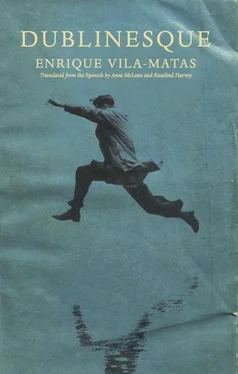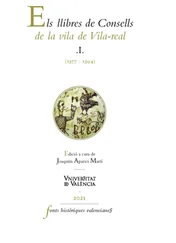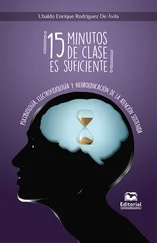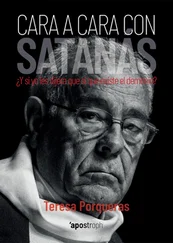Outside, the rain seems to be getting heavier, but it’s just an illusion.
Ricardo, too, is very American, however Colombian he may be by birth. Now he’s assuring Riba, with admirable conviction, that this O’Sullivan is a master of putting the trivial close to the lyrical, and so that Riba might understand him better, he recites a few lines about walking through downtown Boston: “ I go get a shoeshine / and walk up the muggy street beginning to sun / and have a hamburger and a malted and buy / an ugly NEW WORLD WRITING to see what the poets / in Ghana are doing these days .”
He’d like to ask Ricardo what a New World Writing is, but he holds back and merely tries to find out what Ricardo thinks the poets in Ghana might have been doing on that day when O’Sullivan was so inspired. Ricardo looks at him with sudden compassion, almost as if he were looking at a new species of extraterrestrial. But Ricardo is even more Martian-like. At least, his blessed Colombian parents always were, and Ricardo inherited more than a few things from them. Ricardo’s taste for being two-faced probably originated in those parents, his constant leaning toward side A of things, but then his tendency to see its coexistence with side B. All their lives his parents were stubborn progressives, who instilled in him a sort of love-hate feeling toward left-wing revolutionary iconography. Even though they were fiercely gauchistes , his parents were friends — in flagrant, scandalous contradiction — with people as rich as Andrew Sempleton, the investor and philanthropist, known as the good-humored millionaire .
“Loads of money and a big laugh. Very American,” Ricardo always says when he evokes this outstanding man, who was his magnanimous and affectionate godfather. Riba has always suspected Ricardo will end up writing a novel about Sempleton. Despite managing large sums of money, his rich godfather never fell prey to avarice and was generous with many people, including Ricardo’s parents, above all, when they went to jail in Bogotá for political reasons. With parents like that, Ricardo was destined to have a double face and personality, and that’s what happened: a heavy pipe smoker (domestically, only at home) and (in public places) smoker of Pall Mall cigarettes; a solemn and frivolous writer, depending on the day; a home-loving man and at the same time dangerously nocturnal; a Hyde who was a most wildly modern Colombian, yet a quietly American Jekyll. It would be magnificent if he could persuade him to come to Dublin. Why hasn’t he tried yet?
While he waits for the ideal moment to propose the trip, he recalls some of Ricardo’s stories. From his adolescence, the most memorable is the one about Tom Waits and in a hotel room in New York. The daughter of a friend of some friends of his parents had an appointment to interview Waits in his hotel. Ricardo managed to convince her to let him come along. He just wanted to see — he was dying of curiosity to find out — what Waits did when he was alone in a hotel room. They knocked at the door. Waits opened it with a grumpy look on his face. He had black sunglasses on and was wearing a Hawaiian shirt and a pair of very faded jeans.
“Sorry,” Waits said, “but there’s no room for anyone else.”
Ricardo experienced his own particular and somewhat unfortunate great moment there. He experienced it in the center of Waits’s world, a place he was ejected from by a slamming door. There was no interview. His friend cried and blamed him for Waits having acted that way.
The fact is, the most avant-garde poetics in Ricardo’s work, as he himself has always acknowledged, is nourished from the same sources as Waits’s: the lyrics of Irish ballads, the blues of the cotton fields, the rhythms of New Orleans, the lyrics of German cabaret from the 1930s, rock and roll, and country music. It’s a poetics that always fails, although with dignity, in its attempt to imitate, to put down on paper no more than the barroom register of Waits’s voice.
This phrase of the singer’s, spoken in the doorway to his hotel room, really stuck in Ricardo’s head. The phrase stuck in his memory, but so did the Hawaiian shirt and the dark glasses. And more than once he used this phrase to get rid of someone.
It’s what Ricardo uses now in his attempt to leave the Belvedere to go to La Central to buy some books. He says he’s sorry, but there’s no room for anyone else.
“Eh?”
Ricardo always needs movement. He’s monstrously frenetic. Something must be done quickly to detain him. Riba still hasn’t proposed going to Dublin. Why not, for God’s sake? When does he plan on doing it? Not now, because Ricardo is physically trying to project himself toward the street to flee from the Belvedere, where there really is no room for anyone else .
Half an hour later, Ricardo finally gets the proposal. And he claims to have only one question before he accepts the invitation to travel with Javier and Riba to Dublin. He wants to know if it’s just to be there for Bloomsday, or if there’s some dark motive he sould be warned about beforehand.
He still thinks it would be suicide to give Ricardo any kind of clue about his intentions to hold a requiem for the Gutenberg galaxy. Ricardo might think, and he wouldn’t be far off either, that Riba wanted to hold the funeral for himself: a funeral ceremony for his current unemployed state of half-failed publisher, embarrassing idler and computer nerd.
“Look, Ricardo. There is another motive, in fact. I want to take the English leap.”
After agreeing to travel with them, Ricardo is quiet for a long time at first and then starts telling him — almost in passing and without giving it the slightest importance — that he was in New York not long ago, where he interviewed Paul Auster in his house for the magazine Gentleman . He says it as if it’s nothing. At first, Riba can’t even believe it.
“You were in Auster’s house? And how was it? When did you go to New York?”
His eyes have become like saucers and he’s genuinely stunned just by the idea that Ricardo has also managed to visit this three-story brownstone in Park Slope that he once went to and that has since become so legendary in his mind. Straight away he asks Ricardo, doesn’t he think the house was really nice and weren’t Paul and Siri very likeable, pleasant people? He says it with almost childlike wonder and in the belief he has shared a similar experience.
Ricardo practically shrugs. He has not the slightest opinion on the neighborhood, or the Austers’ hospitality, or the house or even the red bricks of the façade. In fact, he has nothing to tell about his visit to the old neighborhood of Park Slope. He hadn’t given his foray into Auster’s house a second thought. For him, it was just another interview. He had more fun the other day, he says, interviewing John Banville in London.
Could it be that having grown up in New York has left Ricardo immune to have any sense of fascination for this city? Quite likely. For him, walking around there is natural, inconsequential.
How different two people can be, even though they’re friends. The city of New York, the Austers, the English wavelength, for Ricardo all this is the most normal thing in the world, it holds no secrets and no special attraction for him. It’s something he’s had ever since he was a child.
Quite easily, Ricardo changes the subject, and above all the character, and tells Riba that in Boston, the day after his visit to Auster, he interviewed O’Sullivan. And then he starts talking about Brendan Behan, who he says was one of the most tremendous Irishmen who passed through New York back in the day.
He doesn’t want to point out to Ricardo it’s useless to tell him things about Behan, as he already knows everything about the man. He lets him talk about the Irishman, until, in a brief lapse of concentration, he brings up the topic of Auster again.
Читать дальше












